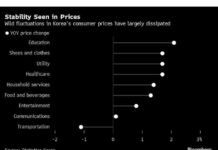Shein, a prominent fast-fashion retailer with Chinese roots, has recently filed a lawsuit against its rival, Temu, for alleged copyright infringement. The lawsuit accuses Temu of stealing designs, engaging in counterfeiting, intellectual property infringement, and fraud to build its empire. This legal battle sheds light on the cutthroat competition within the fashion industry, where brands vie for market share and dominance.
The lawsuit, filed in a federal court in Washington, D.C., is just one of many legal disputes Shein is currently embroiled in. Various brands and independent artists, including Levi Strauss and H&M, have also accused Shein of similar practices. It seems that the fashion industry is rife with allegations of intellectual property theft and unethical business practices, as companies strive to stay ahead in a highly competitive market.
Shein’s complaint against Temu alleges that the rival retailer is operating under false pretenses, portraying itself as a legitimate online marketplace while encouraging sellers to steal designs from other brands. What’s more, Shein claims that Temu prevents these sellers from removing infringing products from its platform, even after they have admitted to wrongdoing. This behavior, according to Shein, not only harms legitimate brands like itself but also deceives consumers who are lured in by the promise of extremely low prices.
One of the most shocking claims in Shein’s lawsuit is that Temu is allegedly losing money on every sale due to its ultra-low pricing strategy. Shein asserts that Temu must subsidize each transaction to cover the costs, as the prices are so low that the company cannot turn a profit. This raises concerns about the sustainability of Temu’s business model and the potential impact on the wider retail industry if such practices go unchecked.
The battle between Shein and Temu is not just about financial losses or market share—it also highlights deeper issues within the fashion industry. Both companies have faced criticism for their labor practices, alleged ties to the Chinese government, and accusations of using other brands’ designs without permission. The growing influence of fast-fashion retailers like Shein and Temu has raised questions about ethics, sustainability, and the future of the industry as a whole.
Shein’s Allegations Against Temu
Shein’s lawsuit paints a damning picture of Temu’s business practices, accusing the rival retailer of engaging in illicit behavior to gain a competitive edge. According to Shein, Temu encourages its sellers to infringe on the intellectual property rights of others and sell counterfeit or substandard goods to minimize its losses. This strategy, Shein claims, allows Temu to offer products at rock-bottom prices while undercutting legitimate brands like Shein.
The lawsuit also alleges that Temu has gone to great lengths to imitate Shein, including stealing valuable trade secrets and internal pricing information. By obtaining this confidential data, Temu allegedly directed its sellers to copy best-selling Shein products and sell knock-off versions on its platform. This not only damages Shein’s reputation and brand value but also deceives consumers who may unknowingly purchase counterfeit goods.
Furthermore, Shein accuses Temu of masquerading as Shein on social media platforms to misdirect customers and promote its own products. The lawsuit includes evidence of Temu-sponsored Google ads that feature Shein’s name but lead to Temu’s website, as well as allegations of paid social media influencers spreading false information about the quality and pricing of Temu products. These deceptive practices, Shein argues, are designed to divert customers away from Shein and towards Temu.
The Impact on the Fashion Industry
The legal battle between Shein and Temu has far-reaching implications for the fashion industry as a whole. It raises important questions about intellectual property rights, ethical business practices, and the role of fast-fashion retailers in shaping consumer behavior. As more companies engage in cutthroat competition to attract customers with low prices and trendy designs, the line between inspiration and infringement becomes increasingly blurred.
Shein’s lawsuit against Temu is just one example of the challenges facing brands in the digital age, where information can be easily shared and copied across platforms. The rapid pace of trends and the pressure to stay ahead of competitors can sometimes lead companies to take shortcuts or engage in unethical practices to maintain their market position. This, in turn, can erode trust among consumers and damage the reputation of the industry as a whole.
As the fashion industry grapples with issues of sustainability, transparency, and accountability, the legal battles between Shein and Temu serve as a stark reminder of the complex dynamics at play. While both companies may be driven by profit and market dominance, the consequences of their actions extend beyond their bottom line. It is essential for brands to uphold ethical standards, respect intellectual property rights, and prioritize the well-being of workers and consumers in an increasingly competitive and fast-paced industry.
In conclusion, Shein’s lawsuit against Temu for copyright infringement sheds light on the challenges facing the fashion industry in the digital age. The legal battle between these two fast-fashion giants highlights issues of intellectual property theft, unethical business practices, and the impact of cutthroat competition on brands, consumers, and the wider industry. As the case unfolds in court, it will be crucial to consider the implications for the future of fashion and the need for greater transparency, accountability, and ethical standards in an ever-evolving marketplace.






















